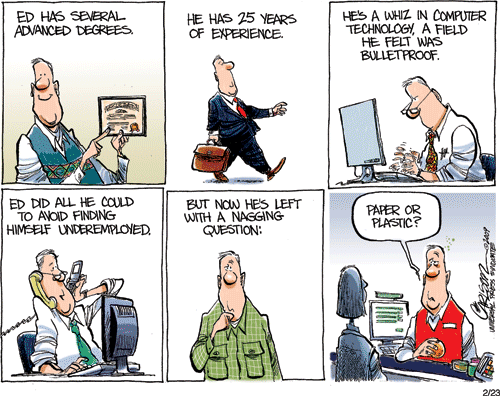Just recently, Salon columnist and constitutional lawyer, Glenn Greenwald was hospitalized with what he thought was the “flu”. It wasn’t. Mr,. Greenwald found that he was infected with the most common mosquito-born virus in the world, dengue, (pronounced DENgee), which yearly infects 50 to 100 million people causing about 24,000 deaths, primarily children. It is endemic in more than 110 countries with 2.5 billion people living in areas where it is prevalent.
 The disease is caused by four closely related viruses, or serotypes, that can manifest in a couple of different ways. The most common is dengue fever, or illness, which presents with high fever, joint pain, severe headache and a a petechial rash (fine, red rash). The severity of the joint pain has given dengue the name “breakbone fever.” Dengue can progress to dengue hemorrhagic fever, which may lead to severe hemorrhage or dengue shock syndrome, where a very low blood pressure can cause organ dysfunction. Both can be fatal but with good medical management mortality can be less than 1%.
The disease is caused by four closely related viruses, or serotypes, that can manifest in a couple of different ways. The most common is dengue fever, or illness, which presents with high fever, joint pain, severe headache and a a petechial rash (fine, red rash). The severity of the joint pain has given dengue the name “breakbone fever.” Dengue can progress to dengue hemorrhagic fever, which may lead to severe hemorrhage or dengue shock syndrome, where a very low blood pressure can cause organ dysfunction. Both can be fatal but with good medical management mortality can be less than 1%.
While dengue is very similar to other viruses transmitted by mosquitoes like West Nile and malaria, it is classified as a “Neglected Tropical Diseases” by the World Health Organization, meaning it is prevalent in tropics, yet has not received attention commensurate with its burden like other diseases such as malaria. There is no vaccine for prevention. However, an attack of dengue produces immunity for a lifetime to that particular serotype to which the patient was exposed.
What are the symptoms?
From the CDC:
The principal symptoms of dengue are:
* High fever and at least two of the following:
o Severe headache
o Severe eye pain (behind eyes)
o Joint pain
o Muscle and/or bone pain
o Rash
o Mild bleeding manifestation (e.g., nose or gum bleed, petechiae, or easy bruising)
o Low white cell count
Generally, younger children and those with their first dengue infection have a milder illness than older children and adults.
Watch for warning signs as temperature declines 3 to 7 days after symptoms began.
Go IMMEDIATELY to an emergency room or the closest health care provider if any of the following warning signs appear:
* Severe abdominal pain or persistent vomiting
* Red spots or patches on the skin
* Bleeding from nose or gums
* Vomiting blood
* Black, tarry stools (feces, excrement)
* Drowsiness or irritability
* Pale, cold, or clammy skin
* Difficulty breathing
How is it treated?
Since dengue is caused by a virus, there is no effective antibiotic treatment. For typical dengue, the treatment is the relief of symptoms, rest and hydration. Aspirin and non-steroidal anti-inflammatory drugs are used cautiously under a doctor’s supervision because of the possibility of worsening hemorrhagic complications. Acetaminophen and codeine may be given for severe headache and for the joint and muscle pain. It may or may not require hospitalization dependent on whether the patient can remain hydrated as other symptoms, nausea, vomiting and diarrhea, can increase fluid loss. The more severe manifestations, require hospitalization and may require oxygen and blood transfusions. Most deaths occur in children. Infants under a year of age are especially at risk of dying from the hemorrhagic form.

 No doubt the Obama administration will tout today’s news that unemployment has fallen .4% to 9.0% as an indication the US economy is improving. It will be quite a back aching twist of logic in the face of poor job growth of only 36,000 jobs in January far below expectations. So what’s really happening?
No doubt the Obama administration will tout today’s news that unemployment has fallen .4% to 9.0% as an indication the US economy is improving. It will be quite a back aching twist of logic in the face of poor job growth of only 36,000 jobs in January far below expectations. So what’s really happening? 


 The disease is caused by four closely related viruses, or serotypes, that can manifest in a couple of different ways. The most common is dengue fever, or illness, which presents with high fever, joint pain, severe headache and a a petechial rash (fine, red rash). The severity of the joint pain has given dengue the name “breakbone fever.” Dengue can progress to dengue hemorrhagic fever, which may lead to severe hemorrhage or dengue shock syndrome, where a very low blood pressure can cause organ dysfunction. Both can be fatal but with good medical management mortality can be less than 1%.
The disease is caused by four closely related viruses, or serotypes, that can manifest in a couple of different ways. The most common is dengue fever, or illness, which presents with high fever, joint pain, severe headache and a a petechial rash (fine, red rash). The severity of the joint pain has given dengue the name “breakbone fever.” Dengue can progress to dengue hemorrhagic fever, which may lead to severe hemorrhage or dengue shock syndrome, where a very low blood pressure can cause organ dysfunction. Both can be fatal but with good medical management mortality can be less than 1%.
Recent Comments